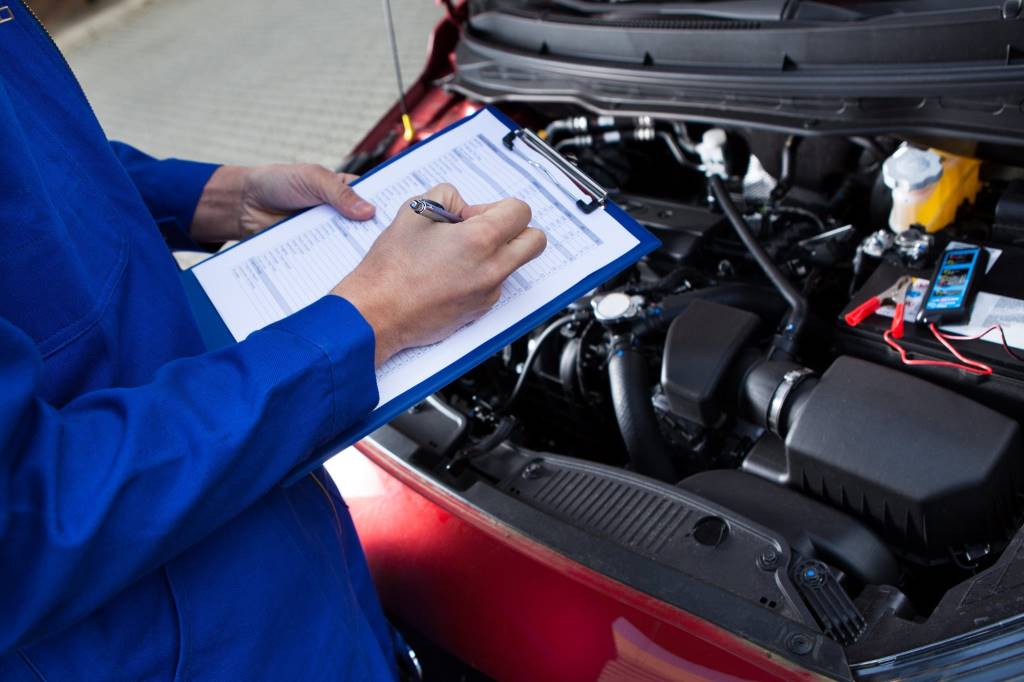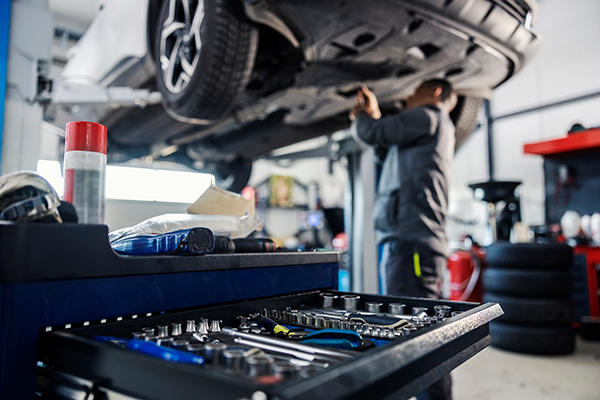It’s a frustrating situation: You drop your car off at the dealership for a repair, and days turn into weeks. And you want to know exactly how long can a dealership hold your car for repair?
The answer lies in a complex nature of the repair, availability of parts, and the dealership’s workload!
Contents
How Long Can A Dealership Hold Your Car For Repair
In general, dealerships typically have a maximum of 30 days to diagnose and repair your car under warranty.
However, this time frame is not always strictly enforced, and some repairs may take longer.
Several factors can influence how long can a dealer keep your car for repair. Complex repairs requiring specialized parts or tools can extend the repair time.
Additionally, the dealership’s workload and the availability of technicians can impact the speed of service.
So it’s important to maintain open communication with the dealership throughout the repair process.
Factors Affecting Repair Timelines
Now you know how long can a dealership hold your car for repair, here are some factors that affect your car’s repair timelines from your dealership!
Complexity of the Repair
The complexity of the repair significantly impacts the time required. Simple repairs, such as oil changes or tire rotations, can often be completed within a few hours.
However, more complex repairs, involving engine or transmission issues, may require extensive disassembly and specialized tools. These repairs can take several days or even weeks to complete.
Availability of Parts
The availability of necessary parts can also influence repair timelines. If the required parts are in stock at the dealership, the repair can proceed promptly. However, if parts are backordered or need to be sourced from the manufacturer, it can significantly delay the process.
Factors affecting part availability include the car’s make and model, the specific part needed, and the manufacturer’s production and shipping schedules.
Dealership Workload
The number of vehicles currently in for repair at the dealership can affect the speed of service. If the dealership is experiencing a high volume of repairs, it may take longer to get to your vehicle.
Additionally, the availability of qualified technicians can influence repair times. If there are not enough technicians to handle the workload, it can lead to delays.
Manufacturer’s Repair Guidelines
Manufacturers often provide specific instructions and recommendations for repairs. These guidelines may include recommended repair procedures, specific tools to use, and even estimated repair times.
While dealerships are generally expected to follow these guidelines, deviations may occur due to unforeseen circumstances or the complexity of the repair.
Additionally, manufacturers may set minimum or maximum repair times, which can influence the dealership’s timeline.

Consumer Rights and Protections
When your car is in for repairs, you should not only learn how long can a dealership hold your car for repair but also be aware of your rights as a consumer.
Lemon Laws are designed to protect car buyers in cases where their vehicles have repeated defects that cannot be repaired.
These laws vary by state, but generally, they require the manufacturer to replace or repurchase a vehicle if it has been in for repair multiple times due to the same problem.
In addition to Lemon Laws, the implied warranty of merchantability applies to all new and used vehicles.
This warranty guarantees that the vehicle is fit for its intended purpose, which in this case, is driving. If your car repeatedly breaks down or malfunctions, it may be a violation of this warranty.
Dealerships have an obligation to keep customers informed throughout the repair process. This includes providing updates on the status of the repair, estimated completion times, and any unexpected delays.
Negotiating Repair Timelines
Be aware of Lemon Laws and the implied warranty of merchantability, as these laws can provide protection in certain cases.
By understanding your options, you can negotiate more effectively with the dealership. Express your concerns and expectations clearly and respectfully.
If the dealership is unable to provide a satisfactory timeline, request alternative transportation or compensation such as loaner vehicles, rental car reimbursement, or discounts on future services.
Negotiating a deadline for the repair can be helpful in ensuring that the dealership takes your concerns seriously. Set a reasonable timeframe based on the complexity of the repair and the dealership’s workload.
If the dealership fails to meet the deadline, be prepared to discuss the consequences. This could include escalating the issue to a higher manager, seeking legal advice, or considering alternative repair options.

Alternatives to Dealership Repairs
While dealerships offer convenience and warranty coverage, exploring alternative repair options can be beneficial. Independent mechanics often provide competitive pricing and personalized service.
They may have more flexibility in scheduling appointments and can offer a wider range of services. However, you should research and choose a reputable independent mechanic with experience working on your specific car model.
When selecting an independent mechanic, consider:
- Reputation: Look for mechanics with positive reviews and recommendations.
- Experience: Ensure the mechanic has experience working on your car’s make and model.
- Certifications: Check if the mechanic has any industry certifications.
- Warranty: Inquire about any warranties or guarantees offered on repairs.
Mobile mechanics offer the convenience of on-site repairs. They can come to your home or office, saving you time and hassle.
These mechanics often specialize in specific types of repairs, such as oil changes or brake jobs. However, they may have limitations in terms of the complexity of repairs they can handle.
Ultimately, consider the factors and weigh the advantages and disadvantages of each option to make a suitable decision.
FAQs
-
Can a dealership charge me storage fees if my car is held for an extended period?
In some cases, if your car is left at the dealership for a long time after repairs are completed and you haven’t picked it up, the dealership may charge storage fees.
Clarify this with the dealership beforehand to avoid unexpected costs.
-
What happens if the dealership can’t fix my car within a reasonable time frame?
If a dealership cannot repair your car within a reasonable time, you may have options such as requesting a loaner vehicle, escalating the issue to the manufacturer, or even exploring lemon law protections if applicable.
It’s worth asking the dealership what their policy is in these situations.
-
Can a dealership hold my car if there’s a dispute over the repair bill?
In some jurisdictions, a dealership can hold your car if there is a dispute over payment for the repairs.
This is often referred to as a mechanic’s lien. It’s important to communicate and resolve any billing disputes promptly to avoid this situation.
-
How long can a dealership wait for a part before they’re required to give me an update?
While there is no universal standard, many dealerships are expected to provide regular updates if there is a delay in obtaining parts.
Ask the dealership what their communication policy is for parts delays so you stay informed throughout the process.
-
If a recall repair takes longer than expected, can I demand compensation or a rental car?
If your car is held for an extended period due to a recall repair, you might be entitled to a rental car or compensation, depending on the manufacturer’s policy and the nature of the recall.
Always inquire about what the manufacturer or dealership offers in such scenarios.
-
What if a dealership damages my car while it’s in for repair, can they still hold it?
If a dealership damages your car during the repair process, they are typically responsible for fixing the damage.
The length of time they can hold the car depends on the extent of the additional repairs needed. In such cases, you may negotiate for compensation or other remedies.
-
Can I request a written estimate for the time it will take to repair my car?
You can request a written estimate for the time frame of the repairs. While this estimate is not legally binding, it can provide a reference point.
If the dealership significantly exceeds the estimated time, use this as a basis for requesting a status update or exploring other options.
-
Can I retrieve my car before repairs are completed if I decide to go elsewhere?
Yes, you typically have the right to retrieve your car before repairs are completed, although you may be required to pay for any work that has already been done.
Communicate clearly with the dealership if you decide to take your car to another mechanic.
Check out this video from Consumer Action Law Group to learn more about how long can a dealership hold your car for repair!
Final Words
Understanding how long can a dealership hold your car for repair and the factors that influence repair timelines is crucial for managing expectations and protecting your rights as a consumer.
When dealing with dealerships regarding repairs, be proactive, express your concerns, and negotiate reasonable timeframes!



